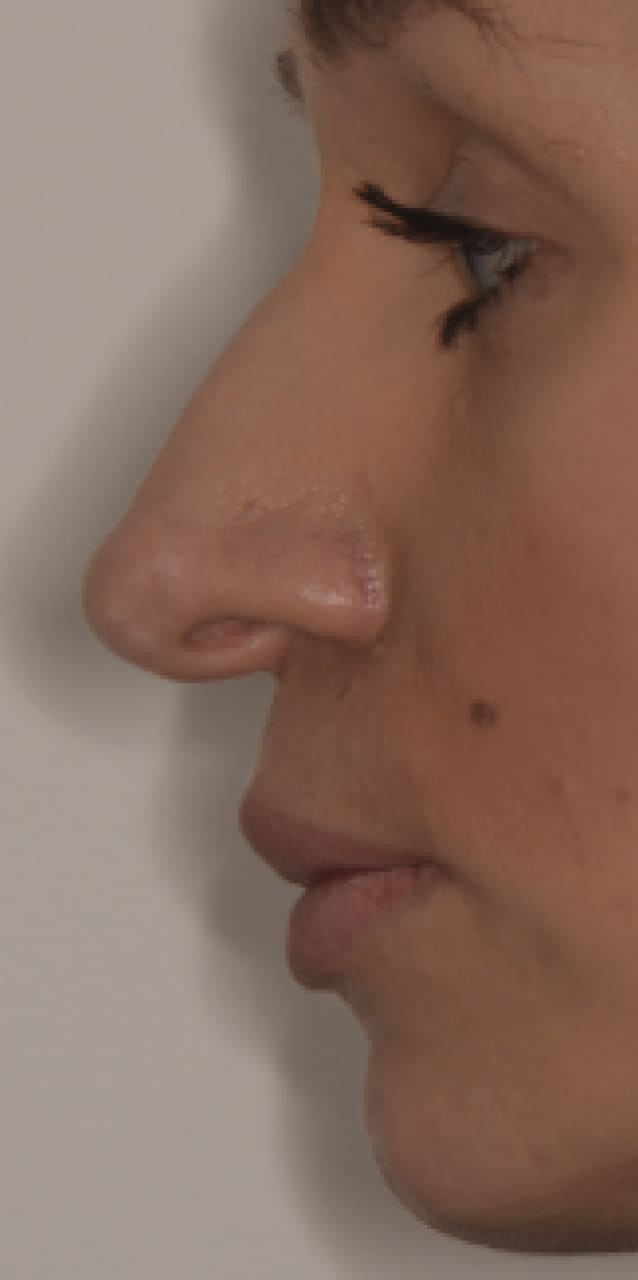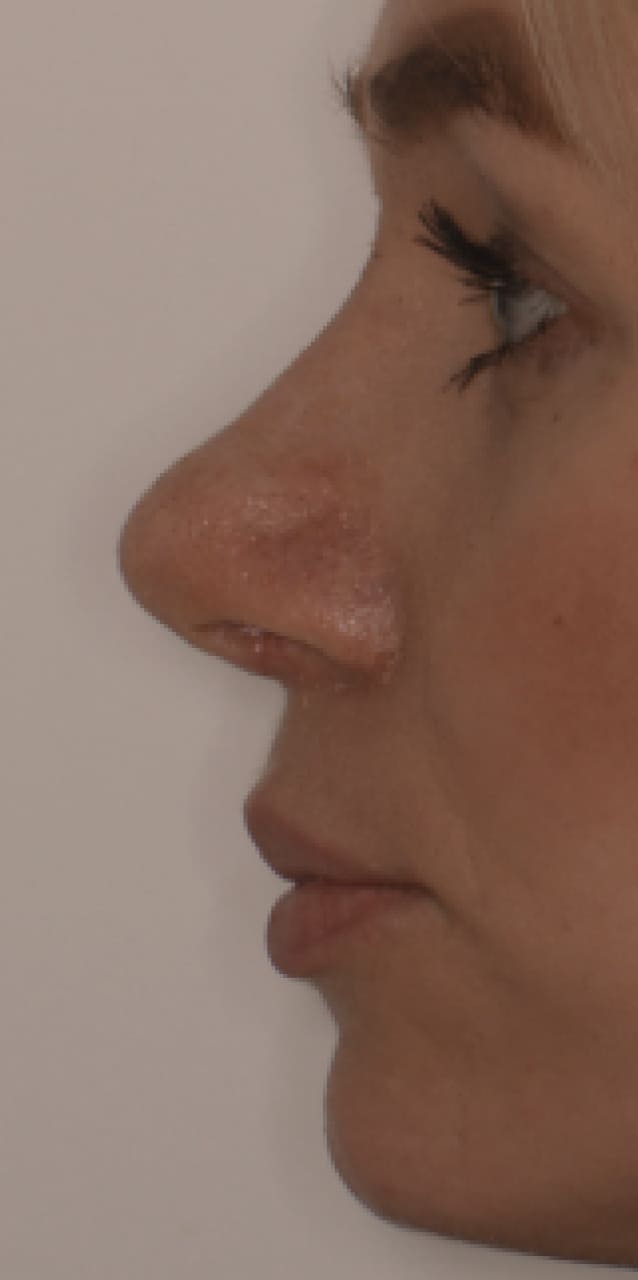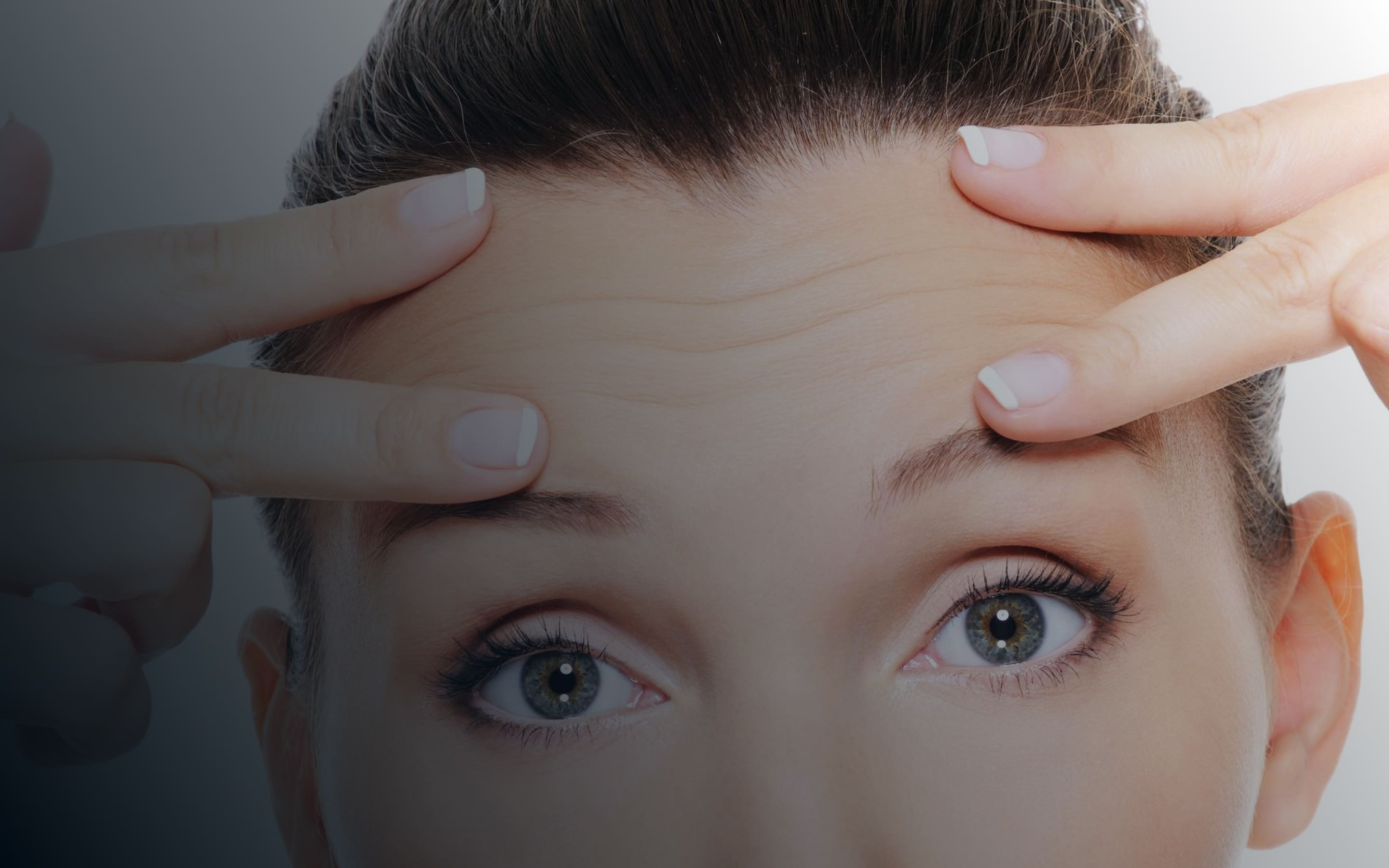Фронтопластика
What is it?
How to make the forehead younger, smoother, and tighter? Especially when botox and filler injections don't give the desired effect?
In this case, an effective cosmetic surgical procedure is forehead surgery or frontoplasty.
It involves improving the aesthetic appearance of the forehead, eliminating wrinkles, folds, and sagging skin using surgical techniques.


As a result, you will achieve:
How is forehead surgery performed?
A long incision along the hairline (usually at the boundary between the forehead and the scalp or slightly higher). Through this incision, the surgeon lifts the skin of the forehead, removes excess tissue, and wrinkles.
Using an endoscope (a thin camera), inserted through several small incisions along the hairline, the surgeon lifts the skin and adjusts the muscles. This is a minimally invasive method with smaller incisions.
Excess skin is removed through an incision along the hairline. This is suitable for patients with a high forehead or those who wish to reduce the height of their forehead simultaneously.
Focused not only on the forehead but also on the eyebrow and upper eyelid area. Often combined with blepharoplasty (eyelid correction).
Age-related changes
Skin condition (elasticity, thickness)
Degree of eyebrow or skin drooping
The patient's preference for invasiveness and recovery time
How is the preparation for the procedure carried out?
Discussion of the desired outcome, assessment of the skin condition, forehead, and eyebrows
Determining the frontoplasty technique
Discussion of possible risks and expected results
Photography for analysis and planning the procedure
General blood and urine tests, blood clotting tests, and other examinations if needed
ECG (electrocardiogram): to exclude heart problems
Consultation with an anesthesiologist, assessing the reaction to anesthesia
In case of chronic illnesses, a consultation with a specialist (e.g., cardiologist or endocrinologist) may be needed
Avoid intensive cosmetic procedures (peels, laser therapy) on the forehead for 2 weeks before the surgery
Use gentle moisturizing products to maintain skin health
Limit alcohol and tobacco consumption 1-2 weeks before the surgery
On the day before the surgery, avoid eating or drinking (usually for 6-8 hours before the procedure)
Proper preparation for forehead surgery significantly reduces the risk of complications and ensures a comfortable course of the surgery and recovery.
Are there any contraindications to forehead surgery?
Chronic diseases in a decompensated state: heart failure, unstable hypertension, severe diabetes, autoimmune diseases
Active infectious diseases (flu, ARVI, herpes, etc.)
Blood clotting disorders (hemophilia, thrombocytopenia)
Oncological diseases in the acute phase
Pregnancy and breastfeeding period.
If contraindications are found, the procedure is postponed or alternative rejuvenation methods are considered
How is recovery after forehead surgery?
Recovery after surgical forehead surgery (frontoplasty) is an important stage that affects the final result of the operation.
The rehabilitation period lasts from a few weeks to several months, depending on the surgical technique and the patient’s individual characteristics.
Duration of stay in the clinic: the patient may return home a few hours after surgery (for the endoscopic method) or the next day (after the classic lift)
Pain and discomfort: moderate pain, swelling, and skin tension may occur. The doctor may prescribe pain relief medications
Drainage: if a drainage tube is placed to remove excess fluid, it is usually removed after 1-2 days
Bandage - applied to reduce swelling and secure the tissues. It needs to be worn continuously for the first few days
Swelling and bruising: the strongest swelling and bruising occur in the first 3-5 days and gradually decrease within 1-2 weeks
Numbness: partial numbness in the forehead, temples, and eyebrows is normal and related to nerve influence. It usually passes after a few weeks or months
Stitches: if non-absorbable sutures were used, they are removed after 7-10 days
Physical activity: it is recommended to avoid physical exertion, bending the head, lifting heavy objects
Reduction of swelling: swelling gradually decreases, and the first results of the surgery can be seen
Returning to normal routine
Skin care: moisturizing creams and scar treatment products as recommended by the surgeon
Final results: scars become less noticeable, and residual swelling disappears.
Return to physical activity: light exercises can be started after 4-6 weeks, while intense physical activities after 2-3 months.
Sun protection: it is recommended to avoid direct sunlight and use sunscreen with a high SPF to prevent pigmentation of scars.
Sleeping on your back with the head elevated to reduce swelling
Cold compresses to reduce swelling in the first few days
Avoid active facial movements: strong laughter, facial expressions, or strain
Avoid smoking and alcohol - it speeds up healing
Follow the doctor's recommendations: including wound care, taking medications, and attending follow-up appointments
Proper care and following the doctor's recommendations ensure quick recovery and lasting rejuvenating effects
Prices for Frontoplasty
Preoperative test package
3200 UAH
Endotracheal anesthesia (2 hours)
8000 UAH
Surgery cost
56500 UAH
Simple dressing
500 UAH
Contacts
On.teodor@gmail.com
Address
Lviv, Dekarta St. 6
